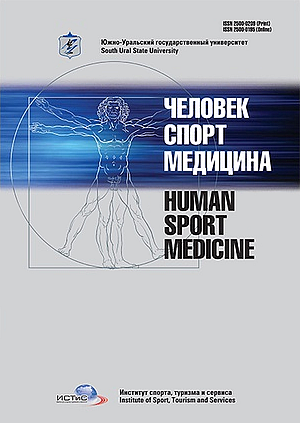ИСПОЛЬЗОВАНИЕ ТЕХНОЛОГИИ ИГРОВОГО ВЗАИМОДЕЙСТВИЯ В ПРОЦЕССЕ ОБУЧЕНИЯ ДЕТЕЙ МЛАДШЕГО ШКОЛЬНОГО ВОЗРАСТА ПЛАВАНИЮ
Ключевые слова:
игровые педагогические технологии, игровой метод
Аннотация
Цель исследования: определить эффективность использования игрового взаимодействия в воде в процессе обучения плаванию детей младшего школьного возраста. Организация и методы исследования. Исследование проводилось с 1 октября 2015 года по март 2016 года на базе ДЮСШ «Жастар». В исследовании принимали участие дети младшего школьного возраста (9–10 лет), умеющие плавать, в количестве 20 человек. Дети были разделены на две группы – контрольную и экспериментальную. В каждой – по 10 человек. Тренировки проходили не только в воде, но и на суше. В нашем исследовании был использован прямой сравнительный педагогический эксперимент, проводимый в уравниваемых условиях. Изучение и анализ научно-методической литературы по данной теме. Педагогическое наблюдение, опрос. Педагогический эксперимент. Метод математической статистики. Результаты. Данные педагогического эксперимента показывают значительный прирост результатов у занимающихся экспериментальной группы. В тесте «торпеда» прирост результатов оказался больше на 60 % по сравнению с контрольной группой, в тесте «задержка дыхания» – на 22 %, в тесте «кроль на задержке дыхания» – на 23 %. Кроме того, обработка тестов с помощью методов математической статистики показала достоверность различий между контрольной и экспериментальной группами в трех тестах из четырех. Заключение. Данные исследования позволяют сделать вывод о том, что применение игрового метода в основной части занятий позволяет повысить эффективность усвоения плавательных навыков, что и подтверждает гипотезу нашего исследования.Литература
- Васильев, В.С. Обучение детей плаванию / В.С. Васильев, Б.Н. Никитский. – М.: Физкультура и спорт, 2004. – 240 с.
- Научное обеспечение подготовки пловцов: Педагогические и медико-биологические исследования / под ред. Т.М. Абсалямова, Т.С. Тимаковой. – М.: Физкультура и спорт, 2006. – 191 с.
- Нетрадиционная методика обучения плаванию детей дошкольного возраста. – М.: Изд-во «Аркти», 2005. – 224 с.
- Педагогическии? эксперимент // Щербак А.П. Характеристика методов исследования: учеб. пособие для студентов специальности «Физическая культура». – http://cito-web.yspu.org/link1/metod/met93/node17.html (дата обращения 08.12.2008).
- Развивающие игры. Быстрее, выше, сильнее. – СПб.: Дельта, 2008. – 56 с.
- Сахарова, M.В. Сущность и содержание спортивно-педагогических технологий / М.В. Сахарова, Ж.К. Холодов, Д.Н. Платонов // Детский тренер. – 2006. – № 1. – С. 76–82.
- Хальянд, Р. Модели техники спортивных способов плавания с методикои? совершенствования и контроля / Р. Хальянд, Т. Тамп, Р. Каал. – Таллин, 2006. – 99 с.
- Шишкова, Е.В. Инновационный подход к обучению плаванию младших школьников в системе школьного физического воспитания / Е.В. Шишкова // Вестн. спортив. науки. – 2007. – № 4. – С. 65–68.
- Шишкова, Е.В. Инновационный подход к организации физического воспитания младших школьников / Е.В. Шишкова // 12 международный научный конгресс «Современный олимпийский и паралимпийский спорт и спорт для всех». – 2008. – T. 3. – С. 164–165.
- Шишкова, Е.В. Обучение младших школьников прикладным навыкам плавания / Е.В. Шишкова // Физ. культура в школе. – 2007. – № 3. – С. 40–42.
- Behavioral characteristics and instructional patterns of expert teaching, and the transfer of those behaviors into a musical setting: Two case studies / C. Johnson, L. Williams, J. Parisi, M. Brunkan // International Journal of Music Edu-cation. – 2016. – Vol. 34. – Iss. 3. – P. 299–310.
- Jorgensen, R. Early years swimming: a way of supporting school transitions? / R. Jorgensen // Early Child Development and Care. – 2016. – Vol. 186. – Iss. 9. – P. 1429–1437.
- Lemonie, Y. Teacher-student interaction, empathy and their influence on learning in swim-ming lessons / Y. Lemonie, R. Light, P. Sarremejane // Sport, Education and Society. – 2016. – Vol. 21. – Iss. 8. – P. 1249–1268.
- Management and teaching methodology of swimming lessons in the Portuguese primary schools / H.A. Rocha, D.A. Marinho, S.S. Fer-reira, A.M. Costa // Motricidade. – 2014. – Vol. 10. – Iss. 2. – P. 45–59.
- Wizer, R.T. Junior Flotation devices in swimming lessons for children: An interventionist study / R.T. Wizer, F.A. de Souza Castro, C. de Miranda Meira // Motricidade. – 2016. – Vol. 12. – Iss. 2. – P. 97–106.
References
Опубликован
2016-12-01
Как цитировать
Егорова, А., & Ибраева, Р. (2016). ИСПОЛЬЗОВАНИЕ ТЕХНОЛОГИИ ИГРОВОГО ВЗАИМОДЕЙСТВИЯ В ПРОЦЕССЕ ОБУЧЕНИЯ ДЕТЕЙ МЛАДШЕГО ШКОЛЬНОГО ВОЗРАСТА ПЛАВАНИЮ. Человек. Спорт. Медицина, 16(4), 54-63. https://doi.org/10.14529/hsm160406
Выпуск
Раздел
Спортивная тренировка
Copyright (c) 2019 Человек. Спорт. Медицина

Это произведение доступно по лицензии Creative Commons «Attribution-NonCommercial-NoDerivatives» («Атрибуция — Некоммерческое использование — Без производных произведений») 4.0 Всемирная.















